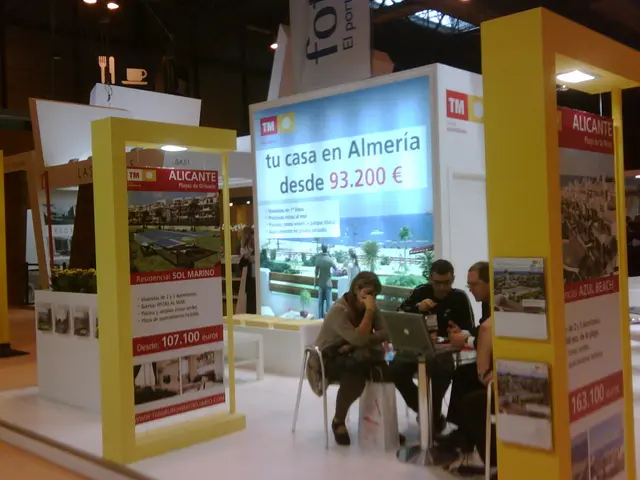Need for Clarity in Regulations for Electric Vehicles
Headline: Germany's "Deutschlandnetz" Project Aims to Expand Electric Vehicle Charging Network
In an effort to support the growth of electromobility, the companies EWE Go and Hochtief have commenced construction on 90 new fast charging parks for electric vehicles as part of the "Deutschlandnetz" project. This initiative aims to have 9,000 fast charging points at approximately 1,000 locations, primarily along highways and federal roads, operational by 2027.
As of now, about 80% of these charging stations have been built. The first charging park, located in Heide, Schleswig-Holstein, is already in operation, boasting twelve 400 kW fast chargers that can simultaneously charge 24 electric cars.
According to the charging market report by Elvah, around 25 million charging processes took place in the second half of 2024, which equates to approximately 137,000 charging processes per day.
Günter Fuhrmann, CEO of charging infrastructure operator Mer, sees a shift in the market dynamics for the rollout of electromobility. He emphasizes the importance of prioritizing locations where good utilization can be expected in the medium term.
The "Deutschlandnetz" project ensures that the next fast-charging point is always reachable within a few minutes throughout Germany. Mer, a subsidiary of the Norwegian energy company Statkraft, operates its own charging parks and is a partner of the Germany network.
The German automotive industry is facing pressure to accelerate its development processes, as Chinese manufacturers bring new models to market much faster. Fuhrmann views competition with Chinese and US manufacturers as a wake-up call for the industry.
The market for electric vehicles needs diversity, especially with regard to smaller and more affordable models that are currently missing from the range. The share of electric cars in new registrations is currently around 16 to 17 percent, which is lower than the original expectation of 25 to 30 percent.
Planning certainty is essential in the commercial sector, as many fleet managers hold back on investments due to the uncertainty about funding. Utilization of publicly accessible charging points varies regionally, with only one in five charging points being above-average utilized in the second half of 2024.
Fuhrmann also highlights the need for reliable incentives and a clear line, such as tax advantages, to achieve a role model effect in society. He positively evaluates the fact that the topic of electromobility is anchored in the coalition agreement of the new federal government, but sees an overall catch-up need in this area.
The "Deutschlandnetz" project aims to create a nationwide, demand-oriented, and user-friendly fast-charging network throughout Germany. Stay tuned for updates on this exciting development in the world of renewable energy and new mobility.
(Note: This article does not include the reminder about the newsletter service.)
Read also:
- Industrial robots in China are being installed at a faster rate than in both the United States and the European Union, as the global market for these robots faces a downturn.
- Hyundai N affirms transition to hybrid performance-centric models, initiating with Tucson N
- EAFO Research Uncovers Crucial Elements in Electric Vehicle Adoption within the EU
- Stock markets in India anticipated a moderate opening, influenced by mixed signals from global markets.








